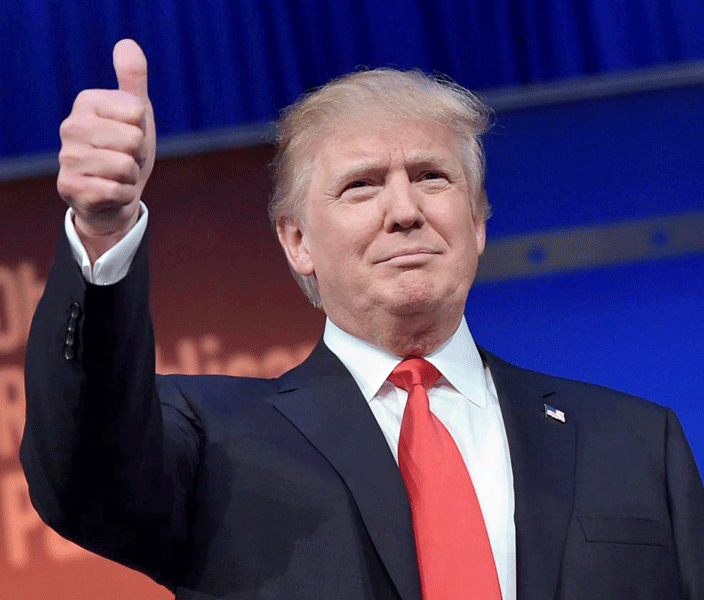For the last 50 days, Donald Trump, the newly and, I should reiterate, fairly, elected President of the USA has come under the most tremendous attack by his opponents. Never before has any elected leader anywhere ever been attacked so comprehensively and forcefully immediately on assuming office.

But while much of the criticism may be justified, on one issue at least Trump cannot be faulted. That issue is globalisation.
The mildest criticism of him on this is that he is damaging globalisation. The severest criticism is that he is ending it.
The truth, however, is that he is doing neither. He is merely correcting it in America’s favour, which is what he has been elected to do. Why fault him for that?
To see why, it is necessary to understand that contrary to the propaganda, it was actually the 20th century which ended globalisation by restricting the international flows of the two main factors of production: capital and labour. It also restricted trade as was never seen in any century before.
So despite claims to the contrary, real globalisation of the pre-20th century kind never really got going in the last century, except somewhat in the matter of capital flows after 1950. Labour flows, of course, never happened in any significant way. Migration was always a controlled affair.
This has to be understood in the context of decolonisation after 1945. The years between 1947 and 1970 saw the emergence of many new countries; that too with democracy. This created pressures on the elected governments of those countries to follow two or three sets of policies: one, to trap domestic savings within national boundaries so that national savings were available for domestic investment; and to increase the export of goods to earn the dollars needed to pay for imports.
If you look at the trends between 1950 and 2008 when the global financial crisis struck, this is what happened. Most of it was made possible by the availability of plentiful and cheap finance that came from Western financial institutions and Western governments. The latter were keen to block the spread of communism and were generous with funding.
The threat of communism vanished after the USSR collapsed in 1990. Over the next decade and a half, financial interests almost completely replaced political interests. Unchecked by anyone, they played havoc with the financial systems of the West, which, ironically, also collapsed like the USSR in 2008! The resulting economic crisis affected the whole world.
The aftermath in both the USSR and the West, as also Asia, has been the emergence of strong political nationalism. Trump, Vladimir Putin, Shinto Abe, Xi Jingping, not to mention Brexit, etc, are all singing the same song, words as well as tunes. They all want to strengthen their countries militarily and economically.
In order to do this, they are following a set of economic policies that is not very different from the policies followed by the newly de-colonised countries in the second half of the 20th century: xenophobia and protectionism. Their political policies also reflect the need for legitimacy, which they are trying to achieve via enhanced appeals to nationalism.
The problem is that often political nationalism poses an opposing force to economic nationalism which is what we are seeing now everywhere in the world. But the culprit is not Trump or Xi or Abe or any of those leaders. The culprit is the world population.
In 1900, it was one billion. Today it is over 7 billion. This sudden increase by over six billion people in just 110 years lies at the root of all of the world’s economic problems. It is as if a bus designed for 72 people is now carrying 432 people. Such a bus is bound to break down and there is no point in blaming the driver, conductor and the mechanic for it.





